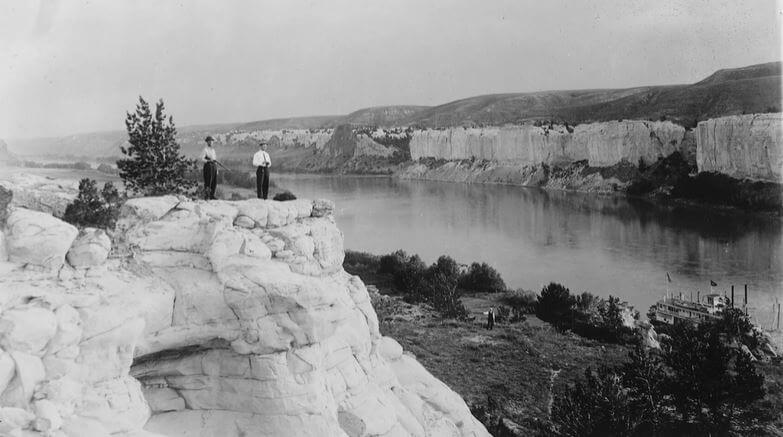 If you darken a door for too long, there’s a chance you won’t ever go inside…
If you darken a door for too long, there’s a chance you won’t ever go inside…
Mrs. Kranick could set up a scene that would come to life in my mind. It was 8th grade English class and I was struggling with my school work for the first time in my memory. Whether it was the clinking of champagne glasses at a cocktail party in Westport, Connecticut during the 1950s, or applying for credit at Sears to buy a guitar for her son’s birthday and being turned down because her husband wasn’t there to sign the application, she could send me to any place on earth and in any time period with her stories.
She had been raised in Ashville, North Carolina by her aunt and her grandmother, and never shared the story of why her parents weren’t around. Perhaps it was this part of her life that had turned her into a storyteller of the greatest stature, and I hoped she would trust her students enough to share more details of her past at some point in time.
Her stories mesmerized me, and I wasn’t alone. Sometimes I would lean back in my chair to take in the deliciousness of whatever she was sharing, only to observe that my fellow students were doing the same. Transformed into a space traveler on a mission, I would allow my mind to be open to the words and images that floated by and whispered my name.
Then the story would come to an end and we would take out our notebooks to do the writing assignment for that day. We learned Greek and Latin roots and word origins and this skill followed me into adulthood when I finally understood the value of what she had taught me.
I never stopped to think about whether the stories Mrs. Kranick was telling us each day were true or not. It didn’t seem to matter one way or another. But finally, there was one story she told that changed my thinking on this topic.
The story took place years before she had been born, and in a small town along the Missouri River. Word quickly spread that there would be a group of gypsies coming through town and they were to set up an area for a weekend fair. There wasn’t much to do in those days, except for helping with the chores and reading from the Bible. So the idea of a fair in town and all that it promised in terms of seeing new things and being entertained in the process held massive appeal.
After weeks of anticipation, the big day finally arrived. Mrs. Kranick’s grandmother Mary and her great aunt Christine washed up and put on their best clothes. They each had a quarter with which to buy something at the fair. They walked along the dirt road and could hear and see the fair long before they got to the spot where they could enter.
Mary and Christine could smell and hear the fair before they saw the colorful flags and banners coming into view in the distance. They hastened their pace and each girl imagined what they might experience on that day. Mary was twelve and Christine was five years old, so when Mary reached down to take her sister’s hand, the younger girl did not mind.
The gypsies were welcoming to all who entered the space they had taken over on that day. It was a brightly colored cacophony of mostly unfamiliar sounds, punctuated with smells, both recognizable and unknown. Mary would later describe the event as a combination of a circus without animals, save for a few stray dogs, and a barn raising, with all of the excitement and mystery making it irresistible to visitors of all ages.
The sun was high in the sky, and the girls shaded their eyes with their hands to see what there was to do first. The music was lively and louder than anything they had ever heard. And at some point they were pulled into a circle dance and separated from one another. As the dancers shifted their steps to a slower pace, Mary could finally see Christine across from her.
On the other side of the state, sisters Muriel and Clara were also getting ready to go to the fair. Their father, Herbert had hitched up the horses to the wagon and whistled for the girls to come outside so they could get started. It was a two hour ride into Hermann and he was anxious to get started before the sun was too high in the sky.
Both families had arrived in time to see the opening ceremony that officially welcomed visitors to the fair. Before the sun set that day, the lives of everyone in attendance would be changed forever, and the story of what really happened wouldn’t be unfolded until more than a century later.
The girls were less than a year apart in age, and many mistook them for twins. But once you got to know them, it was obvious that Clara was the eldest and the one to take charge. Their mother, Esther, had declining heath and it was expected that Clara would help out and take the lead when necessary.
On this day, Herbert would nod at Clara when he could sense that Esther needed to rest for a spell. Clara would gently take Muriel by the hand and lead her closer to where all of the excitement was taking place. At five years old, Muriel was unaware of much that went on around her and more than willing to be guided by her sister.
Late morning became the afternoon, and the crowd grew larger. Herbert left Esther perched on a rock with a flat surface while he went in search of something to drink. He returned shortly with a cup of whiskey for himself and enough lemonade for Esther and the girls when they returned. The atmosphere at the fair was very different from anything they could ever experience back home.
Later on, Clara would remember that as more visitors arrived, she was aware that there were more men than women, and that the children were now outnumbered by the adults. Everyone had come by wagon. The horses were watered and fed and as daylight turned to dusk, some of the people began to pack up and leave.
When Clara finally returned, she was surprised to see that Muriel was not with her parents. It was Esther who first asked as to Muriel’s whereabouts and Clara seemed confused. She said that her head was hurting, so Herbert fixed a blanket in the back of their wagon, made sure Esther and Clara were comfortable, and returned to the main area where the fair continued.
Over an hour later, he returned alone, and it was then they knew that Muriel was lost. A girl named Mary came by, asking if they had seen her little sister, Christine. She had disappeared while Mary stopped to look at some beads and necklaces, and she had assumed the younger girl was right behind her.
Esther became pale, with beads of sweat covering her face and neck. Herbert asked Clara to go with Mary and look for the missing girls. He would stay with Esther and think about what to do next.
This story is a work in progress…

Leave a Reply